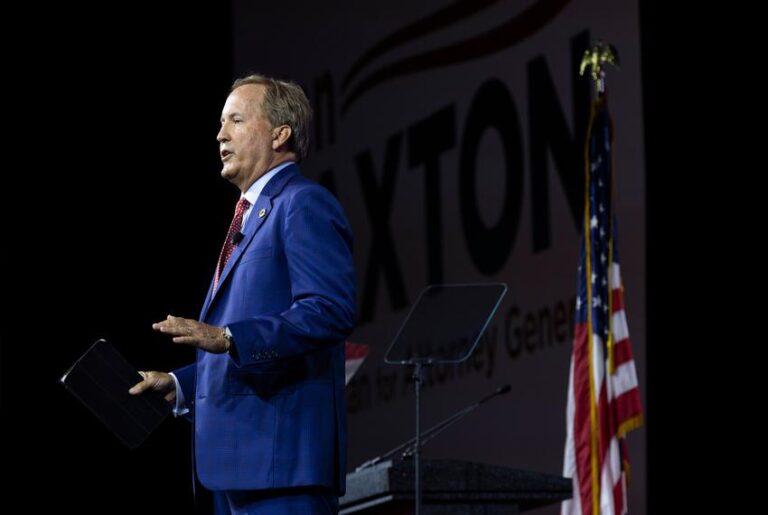How Anti-Immigrant Sentiments Could Propel Trump’s Return to Power
Could Anti-Immigrant Sentiments Fuel Trump’s Comeback?
As we continue to witness the shifting landscape of American politics, one phenomenon stands out—the resurgence of anti-immigrant sentiments. These feelings aren’t just relegated to a fringe group; they’re becoming a vital battleground in the quest for political power. But what does this mean for former President Donald Trump’s potential return to the White House? Let’s dive deep into the intertwining threads of nationalism, immigration issues, and political ambition that could very well ignite his comeback.
The Political Climate: A Recipe for Resurgence
To understand how anti-immigrant sentiments could propel Trump, we must first consider the larger political climate. In recent years, we’ve observed a growing wave of nationalism sweeping across the globe, and the United States is no exception. Many Americans feel anxious about change. This isn’t just about immigration; it’s about identity, economics, and safety.
So, why does this matter? Because when fear takes the wheel, it often drives voters toward familiar faces—like Trump. He embodies a certain kind of populist bravado that promises to “make America great again” while also pinning the blame for societal issues on immigrants.
Just think about it: When times get tough, people often look for someone to blame. It’s a natural reaction. When economic indicators are shaky or when crime rates spike, some citizens might automatically resort to the narrative that immigrants are the culprits. Sadly, this is where Trump’s messages resonate, offering a scapegoat for complex social issues.
The Emotional Appeal of ‘America First’
Trump’s “America First” slogan doesn’t just galvanize a political base; it taps into emotional currents that many can relate to. It’s a cry for pride in one’s nation, a nostalgic yearning for a time when America was perceived as powerful and unquestioned. But at its core, isn’t it also about comfort? People want to feel secure—not just in the economic sense but also in the day-to-day fabric of their lives.
Imagine living in a community where change feels sudden and unwelcome. New faces, different cultures, and languages you don’t understand can create discomfort, if not outright fear. Trump’s approach—simple, direct, and intimidating—offers reassurance that he will protect the status quo. It’s as if he’s telling voters that with him at the helm, they can return to “normalcy.”
And while his views are often criticized and polarizing, they undeniably resonate with a large portion of the population who either feel marginalized or fear losing their societal privileges. It is this emotional connection that risks becoming a powerful weapon in his political arsenal.
Media Amplification: Driving the Narrative
In today’s digital age, media plays a pivotal role in shaping public opinion. Social media platforms magnify messages, allowing anti-immigrant sentiments to spread like wildfire. Each emotionally charged post can reach millions in seconds, reinforcing existing fears and biases.
Let’s be clear: Trump and his allies are savvy in using media to their advantage. They know how to craft headlines and sound bites that echo through online and offline spaces. It’s this component—strategically orchestrated messaging combined with societal fears—that can create a fertile ground for Trump’s resurgence.
When a particular narrative becomes dominant—like immigration being a threat to American jobs—the consequences can be profound. It doesn’t just influence individuals; it alters hearts and minds on a larger scale. As people discuss these themes among themselves, in their workplaces, and even at family gatherings, sentiments further crystallize.
Political Strategy: Capitalizing on Fear
Let’s take a moment to discuss strategy. Political operatives are always on the lookout for advantageous narratives. They understand that any revival of Trump’s base hinges on weaving anti-immigrant sentiments into a broader narrative about national survival.
Think of it this way: If politics were a chess game, each move (or utterance) made by a candidate needs to position them strategically for their next advantage. In Trump’s case, promoting strict immigration policies can be viewed as a powerful move—both to energize his supporters and to align with the desires of undecided voters who prioritize national security and fear economic instability.
Moreover, it’s also about who’s on the other side of the aisle. With many Democrats leaning towards broader immigrant support, Republicans can paint them as out-of-touch with ‘real’ Americans by contrasting their principles with sentiments that resonate with a significant voter base.
The Role of Populism in the Modern Era
Populism isn’t a new phenomenon, but in recent years, it has transcended traditional political boundaries, manifesting itself in numerous ways. Through his distinct brand of leadership, Trump has effectively embodied a populist movement that deems elite institutions and politicians as out of touch.
The anti-immigrant dialogue is key in this equation. By channeling sentiments against immigrants, it serves not just to unify his base but to also draw in those who feel marginalized by the political establishment. It’s as if he’s saying, “I understand you,” and securing votes not just on policies but on emotional resonance.
Future Implications: What’s Next?
Looking ahead, if current trends continue, we could see a scenario in which Trump leverages the mounting fears around immigration into a formidable political campaign. With the 2024 elections looming, the rhetoric around immigration is bound to amplify.
What will the implications be? For one, there’s likely to be an escalation of divisive bravado from political arenas. It might evoke memories of Trump’s initial campaign in 2016, which openly embraced anti-immigrant rhetoric as a key theme.
Moreover, we could witness a heightened debate regarding immigration policies across the nation—changes in laws, increased border security measures, and perhaps a renewed conversation around pathways to citizenship for undocumented individuals.
Conclusion
In wrapping up this deep dive into the complex web of anti-immigrant sentiments and their potential role in Trump’s political resurrection, it becomes evident that this is no simplistic narrative. It’s woven into a broader cultural and emotional tapestry. Amidst fears over identity, job security, and community safety, Trump’s interplay with these sentiments generates a unique political climate, one where he might resonate with voters’ fears and anxieties.
Ultimately, the landscape of American politics is prone to unpredictable shifts. Still, recognizing the profound implications these sentiments cultivate is crucial for understanding how a personality like Trump can once again capture the collective consciousness of certain voter demographics.
As the elections draw closer, one thing remains clear: the narrative around immigration will remain central, not just as a policy concern but as a significant catalyst for political engagement and voter mobilization.
FAQs
-
What factors are driving anti-immigrant sentiments in the U.S.?
- Economic anxiety, cultural shifts, and media narratives are significant contributors to rising anti-immigrant sentiments.
-
How has social media influenced anti-immigrant sentiments?
- Social media amplifies these sentiments by enabling rapid dissemination of emotionally charged messages, often reinforcing biases.
-
What role does populism play in Trump’s messaging?
- Populism allows Trump to present himself as a champion of the working class against elite institutions, utilizing anti-immigrant rhetoric to build his appeal.
-
Could Trump’s anti-immigrant stance affect future immigration policies?
- Yes, as anti-immigrant sentiments gain traction, we could see shifts in immigration laws, border security enhancements, and debates on citizenship pathways.
-
Why is emotional appeal significant in politics?
- Emotional appeal resonates with voters’ lived experiences and fears, often guiding their decisions more deeply than statistics or policies alone.







